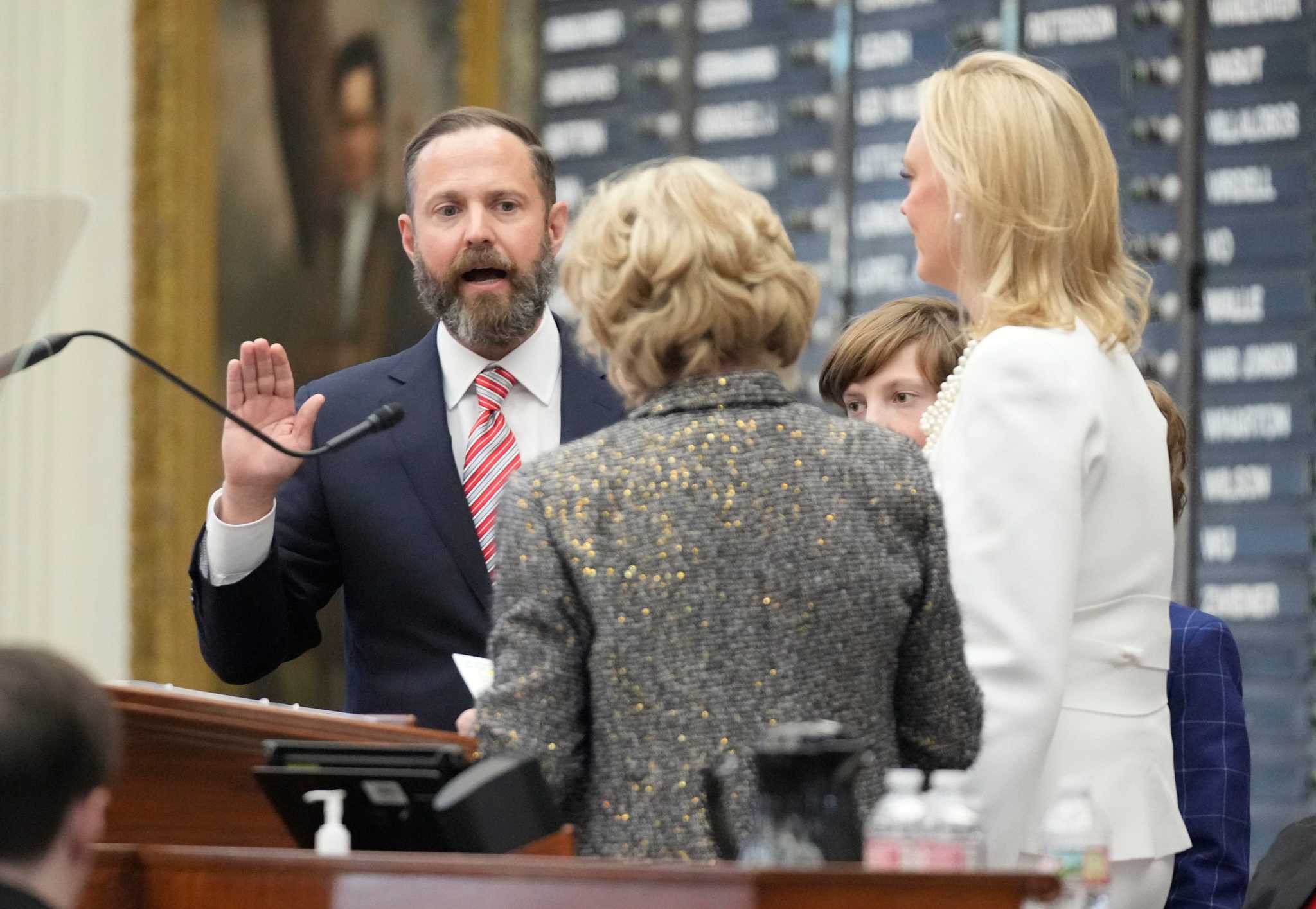politics
Texas Democrats Become Kingmakers in Speaker Race
Texas House Democrats played a decisive role in electing Republican Dustin Burrows as speaker, despite GOP leaders' efforts to exclude them from the process.
Published January 19, 2025 at 12:03pm by John C. Moritz

The Texas House of Representatives voted in its new speaker on Tuesday, Jan. 14, 2025. What happened 2 hours, 44 minutes and 30 seconds after the Texas Legislature came to order at midday Tuesday for the 2025 legislative session was exactly what the three most powerful political figures in state government said must not happen. Democrats, who have 26 fewer seats in the House than Republicans, chose the chamber's new leader—someone with whom most of them disagree on issue after issue.
Republicans have run state government without interruption for more than two decades, holding the Governor's Mansion for 30 straight years and all other statewide offices for 26. The House was the last to come under GOP control, in 2003, and only five sitting Democrats in the 150-seat chamber remain from when their party was in charge. So how could Democrats, who struggle in statewide and most legislative races, hold all the power in choosing a speaker? The answer: Republicans gave it to them.
Since 2023, Lt. Gov. Dan Patrick (R) had grown frustrated with Speaker Dade Phelan (R) for slow-walking or killing Senate bills. Unlike Patrick, whose position is elected statewide, Phelan was chosen by House members—Republicans and Democrats alike. Patrick vowed to oust Phelan loyalists in the next GOP primary. Attorney General Ken Paxton (R) also joined the fray, still angered by the Phelan-led House's impeachment effort against him, which failed due to his acquittal in Patrick's Senate. Gov. Greg Abbott (R) later backed the idea of Republicans selecting the speaker without Democratic help but didn’t commit as strongly as Patrick or Paxton.
Paxton and Patrick, encouraged by GOP grassroots activists, pushed for the speaker to be chosen solely by House Republicans. While most House Republicans agreed, 49 of 62 Democrats voted for Rep. Dustin Burrows (R-Lubbock) for speaker. Only 52 of 88 Republicans voted for Rep. David Cook (R-Mansfield), leaving Burrows to win with 85 votes—36 from Republicans and 49 from Democrats.
Patrick and Paxton warned that Burrows and his allies could face primary challenges in 2026. However, GOP megadonor Alexis Fairly of Amarillo, who initially pledged $20 million to elect a speaker without Democratic help, later softened his stance, saying it would be unwise to primary Republicans who voted independently.
Historically, House speakers rewarded minority-party members who supported them with committee chairmanships. Burrows faces pressure to end this tradition, but with only 36 Republican votes, he may need Democratic support to effectively manage the House's 34 standing committees. Many seasoned Democrats backed Burrows, likely expecting rewards in return.
Rep. Dustin Burrows, R-Lubbock, takes the oath to be speaker of the House on the first day of the 89th Texas Legislature at the Capitol on Tuesday January 14, 2025. (Jay Janner/American-Statesman)
Rep. Venton Jones, right, embraces his partner Gregory Scott Jr. moments after Jones was sworn in on the first day of the 89th Texas Legislature at the Capitol Tuesday January 14, 2025. (Jay Janner/American-Statesman)

